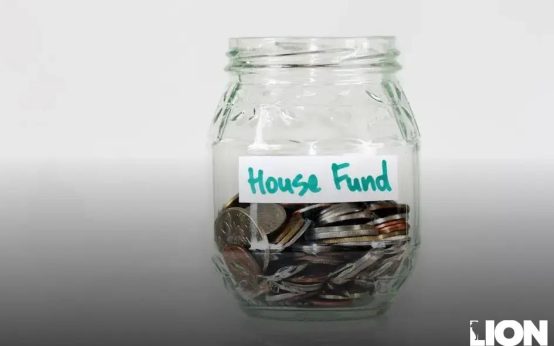Being a victim of financial fraud can be overwhelming, but quick and informed actions are vital. Identifying the signs early, taking immediate steps, and protecting yourself can help mitigate losses and prevent future incidents. In this guide, you’ll learn about recognizing fraud, immediate actions to take, safeguarding your finances, and understanding the importance of legal support.
Recognizing the Signs of Financial Fraud
Identifying financial fraud signs is crucial to act swiftly. One key indicator is unrecognized transactions on your bank statements. If you notice unfamiliar charges, they might be an early warning sign. Inexplicable bank withdrawals could indicate unauthorized access to your account. Additionally, unexpected credit or debit card statements might suggest fraudulent activity.
Always be wary of unsolicited communication. Scammers often impersonate legitimate companies via phone or email to acquire sensitive data. If you receive unexpected correspondence asking for personal details, treat it with caution.
Look out for new accounts or loans appearing on your credit report. This might imply identity theft. Regularly reviewing your report can help catch unauthorized accounts promptly.
Another red flag is receiving calls or letters about purchases you never made. These might be attempts to extract further information or charges related to accounts created in your name without your knowledge.
If you spot any of these signs, taking prompt action is essential to mitigate potential damage and secure your financial information.
Immediate Steps to Take After Fraud

Once you realize you’re a victim of financial fraud, it’s crucial to act swiftly to contain the damage. Here are the immediate steps to take:
Contact Your Bank and Credit Card Company
Inform them about the fraudulent transactions as soon as possible. This enables them to freeze your account and prevent further unauthorized charges. Most institutions have dedicated fraud departments ready to assist you.
Change Your Passwords
Immediately update the passwords for all online banking and financial accounts. Use complex and unique passwords to enhance security. Consider using a password manager to manage them effectively.
Notify the Credit Bureaus
Contact the major credit bureaus (Equifax, Experian, and TransUnion) and place a fraud alert on your credit reports. This alerts creditors to take extra steps in verifying your identity before opening new accounts.
Document Everything
Keep a record of all your communications, including phone calls, emails, and letters with financial institutions and authorities. This documentation will be vital should you need to provide evidence of your actions.
Check for Additional Fraud
Review your recent account statements and look for suspicious transactions. It’s common for fraudsters to test with small amounts before striking with larger sums.
Consider a Credit Freeze
If you’re concerned about your personal information being used fraudulently, request a credit freeze. This prevents lenders from pulling your credit report entirely, reducing the risk of new accounts being opened under your name.
Acting swiftly and methodically can limit further damage and set the stage for recovery after falling victim to financial fraud.
How to Protect Yourself from Future Frauds
Staying vigilant and informed is crucial when it comes to safeguarding against potential future frauds. Understanding common tactics fraudsters use, like phishing emails or phone scams, helps you to be wary of suspicious communications. Use multi-factor authentication on all your accounts to add an extra layer of security. Regularly update your passwords and ensure they are strong and unique for each account.
Monitor your financial statements and credit reports frequently. This can help you quickly spot any unauthorized transactions and take action. Be cautious of sharing personal information, especially on social media platforms, where it might be exploited.
Keep your software and systems updated to protect against the latest security vulnerabilities. Consider encrypting sensitive data on your devices. Educate yourself and your family about common scams and how to avoid them. By staying proactive and informed, you can significantly reduce your risk of falling victim to future frauds.
Legal Support and Reporting Procedures

In the unfortunate event that you fall victim to financial fraud, it is crucial to engage with appropriate legal support and understand the necessary reporting procedures. First, contact law enforcement to ensure the incident is officially documented. This can include local police departments or specialized financial crime units.
Next, report the fraud to financial institutions involved, such as your bank or credit card company. They may offer services to help track and possibly reverse fraudulent transactions. Make sure to have all details at hand, like transaction records and timestamps.
Furthermore, it is advisable to consult a legal professional who specializes in financial fraud. They can provide guidance on how best to proceed, whether it’s pursuing legal action or securing settlements. An attorney will help navigate the complexities of legal claims or lawsuits that may arise.
Remember to also file a report with consumer protection agencies, such as the Federal Trade Commission (FTC) or similar organizations in your country. These bodies collect data on fraud, which can be instrumental in larger investigations.
Engaging with these procedures promptly and efficiently is vital in mitigating the impact of fraud, ensuring all possible measures are taken to recover losses and prevent future incidents.


 Women Are Taking Over the Finance Game: A New Trend
Women Are Taking Over the Finance Game: A New Trend  Bitcoin 2025: Crypto in War, Digital Gold and DeFi Revolution
Bitcoin 2025: Crypto in War, Digital Gold and DeFi Revolution  Tough Money Talk: Financial Discipline & Accountability in 2025
Tough Money Talk: Financial Discipline & Accountability in 2025